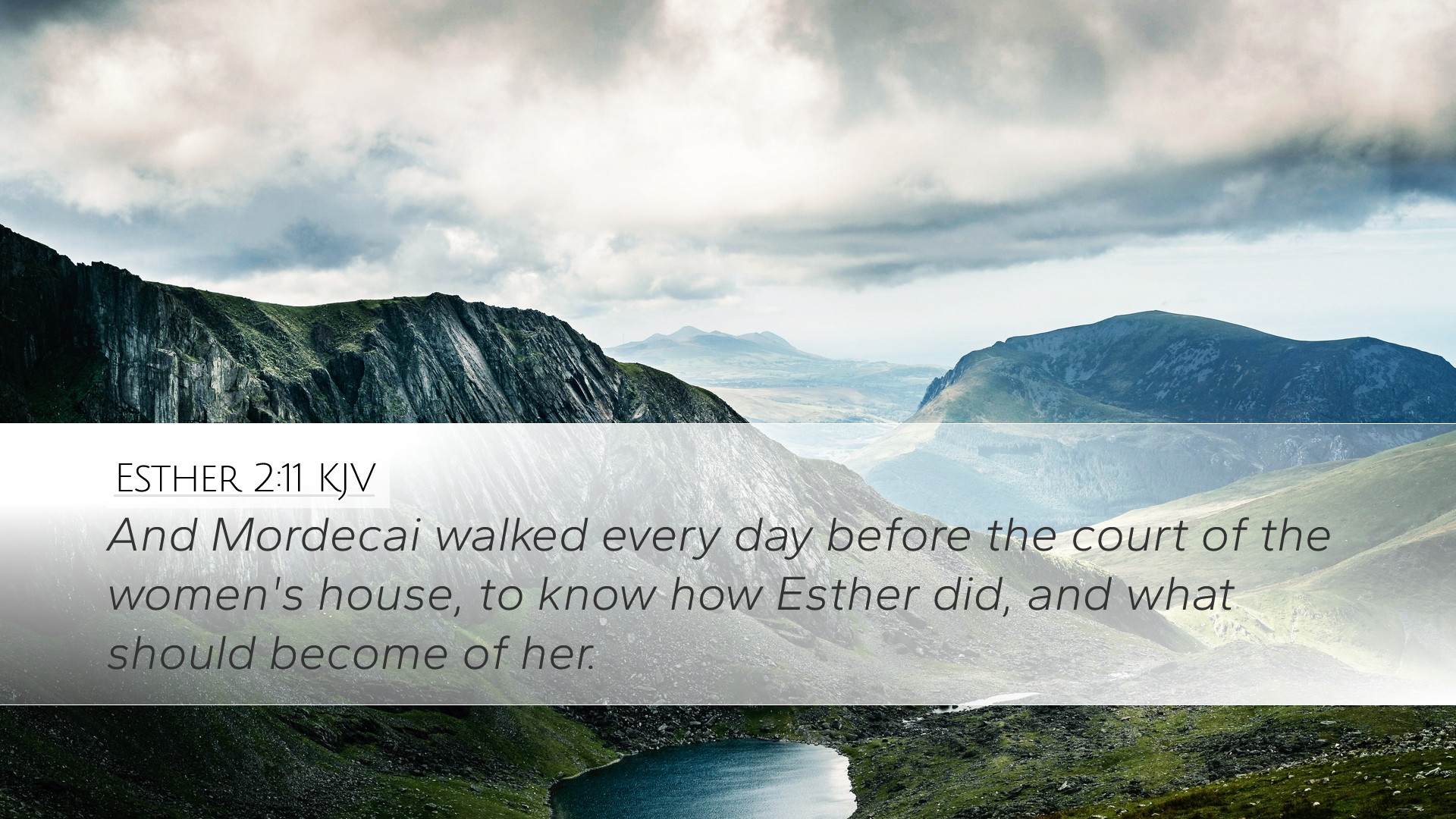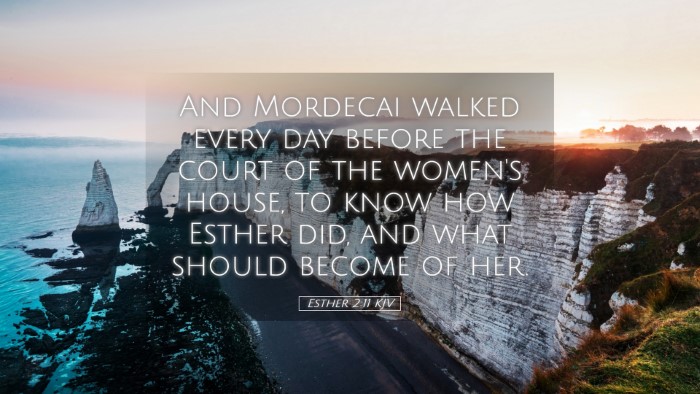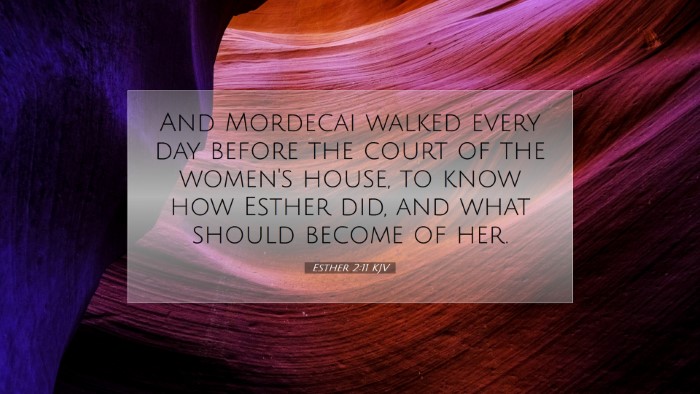Old Testament
Genesis Exodus Leviticus Numbers Deuteronomy Joshua Judges Ruth 1 Samuel 2 Samuel 1 Kings 2 Kings 1 Chronicles 2 Chronicles Ezra Nehemiah Esther Job Psalms Proverbs Ecclesiastes Song of Solomon Isaiah Jeremiah Lamentations Ezekiel Daniel Hosea Joel Amos Obadiah Jonah Micah Nahum Habakkuk Zephaniah Haggai Zechariah MalachiEsther 2:11
Esther 2:11 KJV
And Mordecai walked every day before the court of the women's house, to know how Esther did, and what should become of her.
Esther 2:11 Bible Commentary
Commentary on Esther 2:11
Verse Context: Esther 2:11 states, "And Mordecai walked every day before the court of the women’s house, to know how Esther did, and what should become of her."
Introduction
This verse serves as a poignant reference in the Book of Esther, highlighting the protective love of Mordecai for his cousin Esther. It showcases his diligence and care amidst the backdrop of the Persian court, a setting rife with political intrigue and personal sacrifice. As such, this commentary aims to elucidate the theological and historical significance of this verse, while drawing insights from esteemed public domain scholars.
Thematic Insights
-
Mordecai's Vigilance:
Matthew Henry poignantly remarks on Mordecai's steadfastness as he daily sought news of Esther. This illustrates not just familial loyalty but also the profound connection that Mordecai felt toward Esther, who was in a precarious situation among the harem of King Ahasuerus. His actions represent a commitment to safeguarding her well-being.
-
Divine Providence:
Albert Barnes emphasizes that Mordecai’s daily monitoring of Esther may indicate a belief in a divine purpose unfolding amidst the seeming chaos. The meticulous care taken by Mordecai hints at God’s hand at work, orchestrating events for the deliverance of His people, which is a recurring theme in the narrative of Esther.
-
Role of Women in the Narrative:
Adam Clarke points out that Esther's role as a woman in a predominantly patriarchal society reflects themes of empowerment and agency. Mordecai’s concern illustrates the struggling dynamics of the time, where women were often seen as mere political pawns. His actions thus subvert societal norms by showing Esther's significance in the grander narrative of salvation.
Cultural and Historical Context
The setting within the Persian Empire offers rich insight into the practices surrounding royal women. Esther’s placement among the women’s house exemplified the society’s attitudes toward women. Understanding the historical backdrop helps grasp the weight of Mordecai’s daily vigilance—not just as an act of concern but as a strategic measure within the perilous political landscape.
Mordecai's Role as Guardian
Mordecai's daily routine reflects not only personal care but also an active role in preserving Esther's identity and fate. Barnes comments that Mordecai’s presence in the court speaks volumes about his character. He was willing to be a guardian, navigating the complexities of a foreign court to ensure Esther's safety. This signifies the greater responsibilities often undertaken by figures who stand in the gap for others.
Spiritual Applications
-
Intercessory Love:
Mordecai serves as a prototype for intercessory figures in the Bible. Pastors and theologians may draw upon this example to discuss the importance of watching over those we love in prayer and action, demonstrating Christ-like care.
-
Calling and Purpose:
The narrative invites reflection on one's personal calling. Just as Mordecai took proactive steps to protect Esther’s future, individuals are called to take initiative in their spiritual journeys, trusting God’s direction as they move through life’s trials.
Conclusion
Esther 2:11 encapsulates a multitude of themes, tying together elements of love, protection, and divine providence. As Mordecai exhibited a profound commitment to Esther’s well-being, so should we, in our various capacities, remain vigilant and supportive of those whom God places in our lives. This observation closes with the reminder to acknowledge the workings of God, often hidden behind the curtains of our routines.


